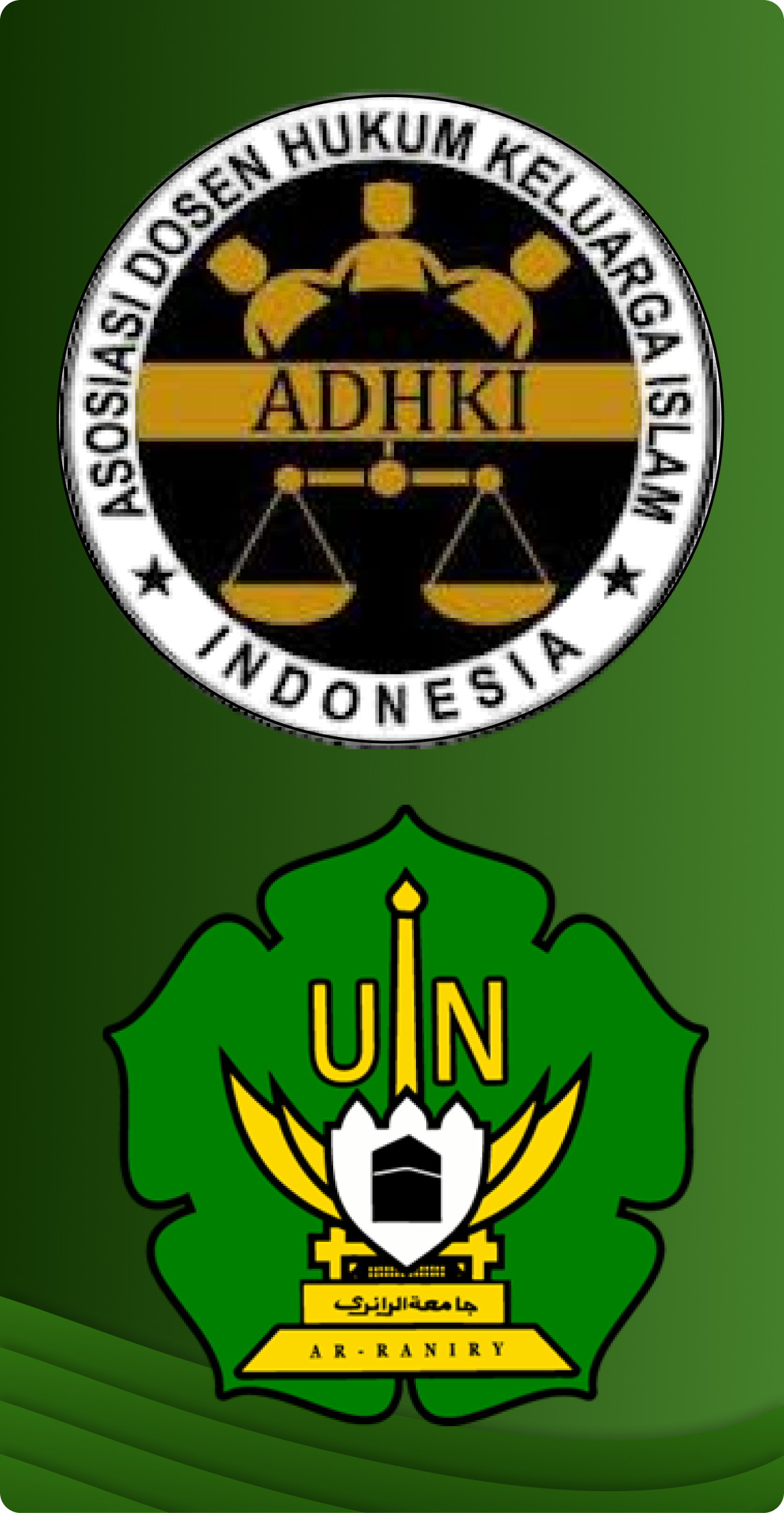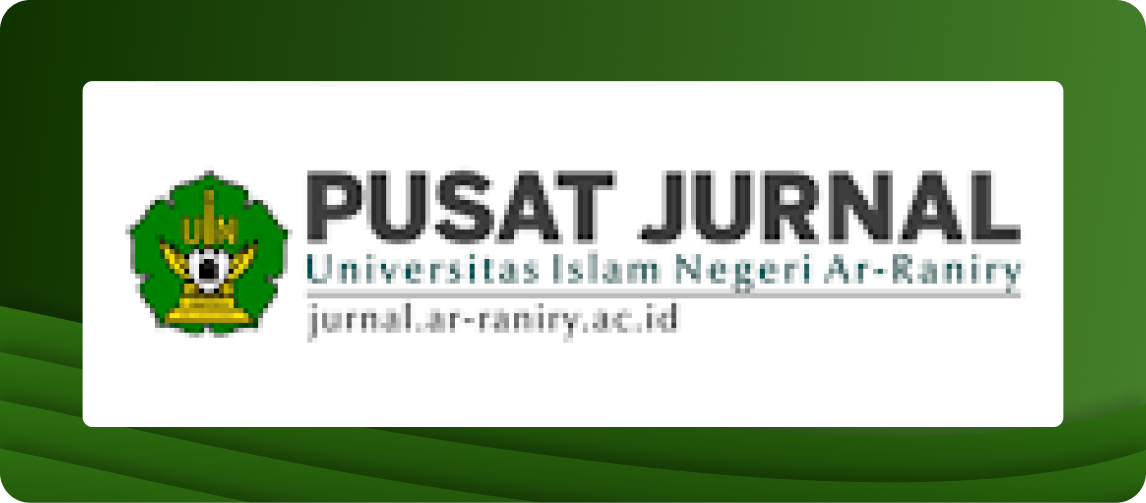Reconstruction of the Concept of Nusyūz in Islamic Law
Perspectives of Religious Figures in Ternate, Indonesia
DOI:
https://doi.org/10.22373/07a9hd02Keywords:
Religious Leaders, Ternate, nusyūz, linguistic approach, partiarchalAbstract
This research aims to examine and reconstruct the concept of nusyūz and the phrase idribūhunna as found in Surah Al-Nisa (4:34), with particular focus on how these concepts are perceived by religious leaders in Ternate City. The purpose of the study is to offer a more humanistic and contextually relevant interpretation of nusyūz that aligns with the dynamics of modern family life. Methodologically, this study adopts a qualitative approach, combining library research with fieldwork. The library research explores classical Islamic jurisprudence (fiqh) and Qur’anic exegesis (tafsir) related to nusyūz, while the fieldwork involves interviews with community and religious leaders in Ternate City. The data were analyzed using three theoretical frameworks: fiqh al-wāqi‘ (contextual jurisprudence), the theory of ‘urf (custom), and linguistic theory (ma‘nā al-ḥaml). The findings reveal that the interpretations held by many religious leaders continue to be shaped by patriarchal norms, leading to a rigid and gender-biased understanding of nusyūz. This study contributes originality by offering a linguistic and contextual reconstruction of the term, presenting nusyūz as a concept that encompasses broader relational disharmony rather than focusing solely on female disobedience. The implications of this research support the development of a more egalitarian and compassionate Islamic legal framework, particularly in addressing family issues in contemporary Muslim societies.References
’Abduh, Syekh Muhammad. Tafsir Al-Manar. Cet. II, V. al-Qahirah: Dar al-Manar, 1947.
Abubakar, Alyasa’. Metode Istislahiah: Pemanfaatan Ilmu Pengetahuan Dalam Ushul Fiqh. Cet. I. Jakarta: Prenada Media Group, 2016.
Abubakar, Fatum, Mazroatus Saadah, and Ulin Na’mah. “The Transformation of the Dilemma of Role Exchange in the Household: Analyzed Gender in Family Resilience Discourse in National Law and Islamic Law.” Jurnal Ilmiah Al-Syir’ah 21, no. 1 (2023): 1. https://doi.org/10.30984/jis.v21i1.1864.
Ahmad, Maghfur, Siti Mumun Muniroh, and Umi Mahmudah. “Male Feminists Promote Gender Equality in Islamic Moderation Perspective.” Religious: Jurnal Studi Agama-Agama Dan Lintas Budaya 5, no. 2 (2021). https://doi.org/10.15575/rjsalb.v5i2.11436.
Aini, Nadirotul, and Nur Aima Shafie. “Trends and Developments in Quranic Linguistic Reseach: A Bibliometic Analysis Based on Scopus Data.” Journal of Islam and Contamporary Society 25, no. 2 (2024). https://doi.org/10.37231/jimk.2024.25.1.834.
Aini, S M Q, and N L Maghfiroh. “Perspektif Tokoh Masyarakat Desa Sidoharjo Tanjunganom Nganjuk Tentang Nusyuz Dan Kekerasan Dalam Rumah Tangga.” Usratuna 5, no. 2 (2022).
Al-Adawi, Mustafa. Jami’ Ahkam Al-Nisa. Vol. III. Saudi Arabiah: Dar al-Sunnah li al-Nasyr wa al-Tauzi, 1995.
Al-Qarafi, Imam Syihabuddin Abu al-‘Abbas Ahmad Ibnu Idris. Nusyūz. Bairut: Dar al-Fikr, 2004.
Al-Qurṭubī, Abū ‘Abdillah Muhammad ibn Aḥmad Al-Anṣārī. Al-Jāmi’ Li Aḥkāmi Al-Qur’ān. Vol. 10. Kairo: Maktabah Taufīqiyyah, 2014.
Al-Sibai, Mustafa. Al Mar’atu Baina Al-Fiqhi Wa Al-Qanun. Cet. VII. Riyad: Dar al-Warraq, 1999.
Al-Zamakhsyari, Abu al-Qasim Mahmud Ibnu ’Umar. Al-Kassyaf ’an Haqaiq Gawamid Al-Tanzil Wa ’Uyun Al-Aqawil Fi Wujuh Al-Ta’wil. Cet. I Vol. Riyad: Maktabah al-Abikan, 1998.
Ali, Parveen Azam, Julie McGarry, and Aneela Maqsood. “Spousal Role Expectations and Marital Conflict: Perspectives of Men and Women.” Journal of Interpersonal Violence 37, no. 9–10 (2022): NP7082–7108. https://doi.org/10.1177/0886260520966667.
Alimuddin, Harwis, Syaifuddin, and Sucipto. “The Comparison of Marital Property Division Between Indonesia and Malaysia from the Perspective of Fiqh Rules.” PAREWA SARAQ : Journal of Islamic Law and Fatwa Review 4, no. 1 (2025). https://doi.org/10.64016/parewasaraq.v4i1.30.
Aminu, Sanusi Lamido, Islamic Family Law, Social Reform, and Case Study. “Codification of Islamic Family Law as an Instrument of Social Reform : A Case Study of the Emirate of Kano and Comparison with the Kingdom of Morocco,” 2024. https://doi.org/https://doi.org/10.25501/SOAS.00042454.
Aminuddin Shofi, Muhammad, Sahrul Hidayatullah, and Abdul Hamid. “Multidimensional Paradigm of Maqasid Sharia in the Book of ‘Nahwa Taf’Ili Maqashid Sharia’ By Jamaluddin Athiyyah.” Jurnal Lektur Keagamaan 20, no. 2 (2022). https://doi.org/10.31291/jlka.v20i2.1085.
Analiansyah & Nurzakia. “Konstruksi Makna Nusyuz Dalam Masyarakat Aceh Dan Dampaknya Terhadap Perilaku Kekerasan Dalam Ruamah Tangga (Studi Kasus Di Kecamatan Ingin Jaya).” Gender Equality: International Jurnla of Chilld and Gender Studies 5, no. 2 (2015).
Asatiz, Lajnah min Asatizah Qismi al-Fiqh bi Kuliiyah al-Sayariah wal Qanun Jami’ah al-Azhar al-Syarif. Muhadarat Fi Al-Ahkam Al-Muta’alliqah Bi Fiqhi Al-Usrah ’ala Mazhab Imam Al-Syafi’i. al-Qahirah, 2007.
Asmara, Musda, Rahadian Kurniawan, Wahyu Abdul Jafar, Anggoro Sugeng, Sakirman Sakirman. “Trendy Veil: Law, Function, and Its Stigma on Muslim Society”, Juris: Jurnal Ilmu Syariah 22, No. 2 (2023). http://dx.doi.org/10.31958/juris.v22i2.8609.
Asyur, Muhammad Tahir Ibnu. Tafsir Al-Tah}rir Wa Al-Tanwir. Tunis: Dar al-Tunisiyah li al-Nasyr, 1984.
Badawi, Ahmad. “Lafaz Ditinjau Dari Segi Hakikat Dan Majaz (Wacana Pengantar Studi).” Al-Fikru: Jurnal Ilmiah 13, no. 1 (2019). https://doi.org/10.51672/alfikru.v13i1.27.
Bakhri, Amirul. “Legal Determination of Husband’s and Wife’s Disobedience in Shia Law and the Islamic Law Compilation : A Comparative Study.” JURNAL HUKUM ISLAM Faculty of Sharia, Universitas Islam Negeri K.H. Abdurrahman Wahid Pekalongan, Indonesia. 21, no. 2 (2023): 389–414. https://doi.org/https://doi.org/10.28918/jhi_v21i2_07.
Danial, Yoesrizal M. Yoesoef, Nur Sari Dewi M. “Sexual Violence in The Islamic Law Perspective: Aceh Islamic Law and Local Wisdom Approach.” Ulumuna 27, no. 1 (2023). https://doi.org/10.20414/ujis.v23i1.677.
Devy, Soraya, and Fakhrurrazi M. Yunus. “Protection of Women in Aceh Qanun No. 6 of 2014 Concerning Jinayah Law (Acehnese Perception Analysis).” Media Syari’ah : Wahana Kajian Hukum Islam Dan Pranata Sosial 24, no. 2 (2022). https://doi.org/10.22373/jms.v24i2.15380.
Djawas, Mursyid, Ridhwan, Soraya Devy, and Asmaul Husna. “The Government’s Role in Decreasing Divorce Rates in Indonesia: The Case of Aceh and South Sulawesi.” Ahkam: Jurnal Ilmu Syariah 21, no. 1 (2021). https://doi.org/10.15408/ajis.v21i1.20870.
Faizah, Nur. “The Spiritualization of Domestic Violence in the Digital Era: Examining the Cathartic Role of Religious Institutions in Empowering Victims.” De Jure: Jurnal Hukum Dan Syar’iah 15, no. 2 (2023). https://doi.org/https://doi.org/10.18860/j-fsh.v15i2.23297.
Fatah, Abdul. “Kasus KDRT Di Maluku Utara Kian Masif.” 2023.
Fathorrahman, A Hashfi Luthfi, Riyanta, and Ach Fatayillah Mursyidi. 2024. “Dynamics of Thought in the Fiqh of Civilization Halaqah at Pesantren Affiliated With Nahdlatul Ulama (NU) in Yogyakarta”. Ijtihad : Jurnal Wacana Hukum Islam Dan Kemanusiaan 24 (1). https://doi.org/10.18326/ijtihad.v24i1.71-95.
Fitriyani, Fitriyani, Asep Saepudin Jahar, Zaitunah Subhan, and Rosdiana Rosdiana. “The Judges’ Legal Consideration on Divorce of Nushūz Cases at the Kupang High Religious Court: Gender Perspective.” Samarah 7, no. 3 (2023)=. https://doi.org/10.22373/SJHK.V7I3.14425.
Harwis Alimuddin, and Zulkarnain Abdurrahman. “Kedudukan Izin Istri Dalam Poligami: Analisis Teori Perubahan Hukum Dengan Perubahan Sosial.” AL-SYAKHSHIYYAH: Jurnal Hukum Keluarga Islam Dan Kemanusiaan 5, no. 1 (2023). https://doi.org/http://dx.doi.org/10.30863/as-hki.v5i1.4003.
Hussain, Saqib. “The Bitter Lot of the Rebellious Wife: Hierarchy, Obedience, and Punishment in Q. 4:34.” Journal of Qur’anic Studies 23, no. 2 (2021). https://doi.org/10.3366/jqs.2021.0466.
Ismail, Busyro, Nofiardi, Fajrul Wadi, and Hanif Aidhil Alwana. “The Contribution of ‘Urf To the Reform of Islamic Inheritance Law in Indonesia.” Al-Risalah: Forum Kajian Hukum Dan Sosial Kemasyarakatan 22, no. 2 (2022. https://doi.org/10.30631/alrisalah.v22i2.1243.
Ismail, Imaduddin Abu al-Fida Ibnu Katsir al-Dimasyqi. Tafsir Al-Qur’an Adzim. Vol. I. al-Qahirah: Dar al-Da’wah al-Islamiyyah, 2004.
Kamal-deen Olawale Sulaiman. “Insight into the Qur’an, 4: 34 Ruling as Regard Wife Beating in Islam” 14 (2015).
Kasim, Fajri M., Abidin Nurdin, Salman Abdul Muthalib, Samsinar Syarifuddin, and Munawwarah Samad. “The Protection of Women and Children Post-Divorce in Sharia Courts in Aceh: A Sociological Perspective.” Ahkam: Jurnal Ilmu Syariah 22, no. 2 (2022). https://doi.org/10.15408/ajis.v22i2.28747.
Kayyal, Basimah. Tatawwur Al-Mar’ah ’Abra Al-Tarikh. Bairut: Muassasah ’Izzu al-Din, 1981.
Maloko, M. Tahir, Agus Indiyanto, Henky Fernando, and Yuniar Galuh Larasati. “Sompa Tanah in Makassar Bugis Customary Marriages: Legal, Religious, and Cultural Perspectives.” Jurnal Ilmiah Peuradeun 12, no. 3 (2024). https://doi.org/10.26811/peuradeun.v12i3.1309.
Marinsah, Syamsul Azizul, Mohd Nur Hidayat Hasbollah Hajimin, Habibah Artini Ramlie, Abdul Hair Beddu Asis, Abang Mohd Razif Abang Muis, Suraya Sintang, Mohd Anuar Ramli, Khairul Azhar Meerangani, and Mohd Zulfiqar Jamudin. “Consideration of Local Wisdom Elements in The Concept of Fiqh Sabahi: A Literature Review.” International Journal of Academic Research in Business and Social Sciences 14, no. 3 (2024). https://doi.org/10.6007/ijarbss/v14-i3/20773.
Meitayani, Dwi. “Konsep Nusyuz Dalam Mazhab Syafi’i Perspektif Keadilan Gender”. Al-Manahij: Jurnal Kajian Hukum Islam 4, no. 1 (June 22, 2010. https://doi.org/10.24090/mnh.v4i1.3661
Muhammad Syahrur. Nahwa Usulin Jadidah Li Al-Fiqhi Al-Islami: Fiqhu Al-Marah, Al-Wasiyyah, Al-Irts, Al-Qawamah Al-Ta’addudiyah, Al-Libas. Cet. I. Dimasyq: al-Ahali li al-Tiba’ah wa al-Nasyr wa al-Tauzi’, 2000.
Muhtarom, Ali, Ade Dedi Rohayana, Maghfur Ahmad, Kurnia Muhajarah, and Nur Hamid. “Gender Ideology in the Study of Islamic Legal Thought at Postgraduate UIN K.H. Abdurrahman Wahid Pekalongan.” Muwazah 58 (2023). https://doi.org/10.28918/muwazah.v15i1.1420.
Munib, Abdul. “Batasan Hak Suami Dalam Mempertahankan Isteri Pada Saat Nusyuz Dan Kemungkinan Sanksi Pidana.” Voice Justicia: Jurnal Hukum Dan Keadilan III (2019).
Mulia, Musdah. “Hukum Islam dan Dinamika Feminisme dalam Organisasi Nahdlatul Ulama.” Al-Ahkam 23, no. 1 (April 21, 2013). https://doi.org/10.21580/ahkam.2013.23.1.72.
Muslimin, J. M., Shubhan Shodiq, Kamarusdiana, and Thamer Hamdi M. Almutairi. “Sextortion, Gender, and Digital Crime: A Socio-Legal Comparison between Positive and Islamic Law.” Al-Ihkam: Jurnal Hukum Dan Pranata Sosial 19, no. 2 (2024. https://doi.org/10.19105/al-lhkam.v19i1.8731.
Najib, Dr. Aan. “Contextual Qur’an Interpretation: The Study on the Concept of ‘Hierarchy of Values’ Abdullah Saeed.” Journal of Islamic Studies and Culture 4, no. 2 (2016). https://doi.org/10.15640/jisc.v4n2a9.
Nasyiah, Iffaty. “Urgency of Fatwa on Domestic Psychological Violence in Indonesia as an Effort to Protect Women’s Rights.” De Jure: Jurnal Hukum Dan Syar’iah 16, no. 1 (2024). https://doi.org/10.18860/j-fsh.v16i1.26403.
Nur Khasanah. “Hermeneutics of The Qur’an: A Study of Muhammad Sharur’s Thoughts on The Men and Women Equality.” NURANI, 2020,. https://doi.org/https://doi.org/10.19109/nurani.v20i1.5339.
Prakon, Abdu Ihram, Siti Aisyah, and Ahmad Fauzan. “Women and Polygamy in the Construction of East Flores Community Customs.” Mazahibuna 5, no. 2 (2023). https://doi.org/10.24252/mazahibuna.vi.39903.
Putra, Dedisyah, and Acela Nuriza. “Human Rights Protection in the Islamic Family Law: A Case Study Concerning Domestic Violence” 6, no. 1 (2023). https://doi.org/10.14341/diaconfiii25-26.05.23-62.
Qasim, ’Ali Muhammad Ali. Nusyūz Al-Zaujah, Asbabuhu Wa ’Ilajuhu Fi Al-Fiqhi Al-Islami. Misr: Dal al-Jami’ah al-Jadidah li al-Nasyr, 2004.
Rakib, Abdur. “Pergaulan Dalam Pertunangan Dan Khalwat Fi Ma ’ Na Al -Haml :” At-Turāṡ: Jurnal Studi Keislaman 6, no. 1 (2019). https://doi.org/10.33650/at-turas.v6i1.547.
Rasidin Mhd., Doli Witro, Rahmi Diana, Moh. Nailul Muna, Imaro Sidqi, Hening Sukma Daini. “The Mapping Verses and Application of the Linguistic Approach and Ushul Fiqh Toward the Law of Adultery”. El-Mashlahah 14, No. 1 (2024), https://doi.org/10.23971/el-mashlahah.v14i1.7354.
Rima. “KDRT Masih Sering Terjadi Di Kota Ternate.” RRI. Ternate, May 2024.
Rokan, Mustafa Kamal, Imam Yazid, and Ahmad Makky. “Reconstruction of the Concept of Nushuz of the Wife in the Digital Era.” Samarah 4, no. 2 (July 2020). https://doi.org/10.22373/sjhk.v4i2.7259.
Sabri, Fahruddin Ali, Linda Farihatur Rohmah, Mukhammad Nur Hadi, and Suqiyah Musafa. The Reality of Violence Against Wives: Dynamics of Social Settlement and Support in Lamongan , East Java Introduction Violence Against Wives is a Severe Problem That Occurs in Indonesia. The Indonesian State Strives to Protect Wives from Various Forms O. Vol. 23, 2024. https://doi.org/https://doi.org/10.21093/mj.v23i1.7512.
Sar'an, Mohamad., Yusuf Hidayatulloh, Sofia Gussevi, Riski Indrawan, Nur Alam Ullumuddin Zuhri. “Implementation of Harmonious Family in the Concept of Proportionality of Obligations and Rights of Husband and Wife Relations: A Perspective on the Compilation of Islamic Law”. El-Usrah: Jurnal hukum Keluarga 7, No. 2 (2024), https://doi.org/10.22373/ujhk.v7i2.24662.
Shihab, M. Quraish. Tafsir Al-Misbah: Pesan, Kesan Dan Keserasian Al-Qur’an. Vol. II. Jakarta: Lentera Hati, 2002.
Sofiani, Trianah, Iqbal Kamalludin, and Raihanah Abdullah. “Violence Against Women in Pre-Marital Relationships : The Ngemblok Tradition among the Muslim Community in Rembang” 5, no. 2 (2024).
Tahir, al-Habib Ibnu. Al-Fiqh Al-Maliki Wa Adillatuhu. Cet. III. Lubnan: Muassasah al-Ma’arif, 2005.
Triana Nita. “Urgency Critical Legal Studies Paradigm for The Protection of Women Victims of Domestic Violence In The Divorce Case”. Syariah: Jurnal Hukum dan Pemikiran 18, No. 2 (2018), https://doi.org/10.18592/sy.v18i2.2276.
Wahbah al-Zuhaili. Fiqh Al-Islami Wa Adillatuhu. Vol. IX. Dimasyq, n.d.
Yusron, Muhammad. “Rational Reasoning and Maslahah: Umar Ibn Al-Khattab’s Ijtihad on Cases of Islamic Inheritance: Penalaran Rasional Dan Maslahah: Ijtihad Umar Ibn Al-Khattab Pada Kasus-Kasus Kewarisan Islam”. Journal of Islamic Law 2, no. 2 (August 5, 2021). https://doi.org/10.24260/jil.v2i2.327.
Zaidan, Abdul Karim. Al-Mufassal Fi Al-Ahkam Al-Marah Wa Al-Bait Al Muslim. Bairut: Muassasah li al-Nasyr wa al-Tauzih, 1993.
ZTF, Pradana Boy. “The Sociology of Law in the Context of Islamic Legal Scholarship in Indonesia.” Journal of Social Studies (JSS) 18, no. 2 (2022). https://doi.org/10.21831/jss.v18i2.50847.
Interviews
Interview with Samlan Ahmad, The Head of Ulema Council (MUI) of Nort Maluku Province, Juli 2024.
Interview with A’raf Safuddin, The Head of Fatwa Commission of The Indonesian Ulema Counsil (MUI) of Ternate City, Juli 2024.
Interview with Abdul Rahman Syukur, Teacher of Al-Khaerat Islamic Boarding School Ternate, Juli 2024.
Interview with Amanan Sulaeman Saumur, Religious Leader and Academic from IAIN Ternate, Agustus 2024.
Interview with Muhammad Ar. Husein, Religious Leader and Expert in Positive Law, Agustus 2024.
Downloads
Published
Versions
- 2025-06-30 (6)
- 2025-06-30 (5)
- 2025-06-30 (4)
- 2025-06-30 (3)
- 2025-06-30 (2)
- 2025-06-30 (1)
Issue
Section
License
Copyright (c) 2025 Harwis Alimuddin, Marini Abdul Djalal, Abdul Haris Abbas, and Islamul Haq

This work is licensed under a Creative Commons Attribution-ShareAlike 4.0 International License.
Authors who publish in El-Usrah: Jurnal Hukum Keluarga agree to the following terms:
Authors retain copyright and grant the journal right of first publication with the work simultaneously licensed Attribution-ShareAlike 4.0 International (CC BY-SA 4.0) that allows others to share the work with an acknowledgment of the work's authorship and initial publication in this journal.
Authors are able to enter into separate, additional contractual arrangements for the non-exclusive distribution of the journal's published version of the work (e.g., post it to an institutional repository or publish it in a book), with an acknowledgment of its initial publication in this journal.
Authors are permitted and encouraged to post their work online (e.g., in institutional repositories or on their website) prior to and during the submission process, as it can lead to productive exchanges, as well as earlier and greater citation of published work. (See The Effect of Open Acces)

















